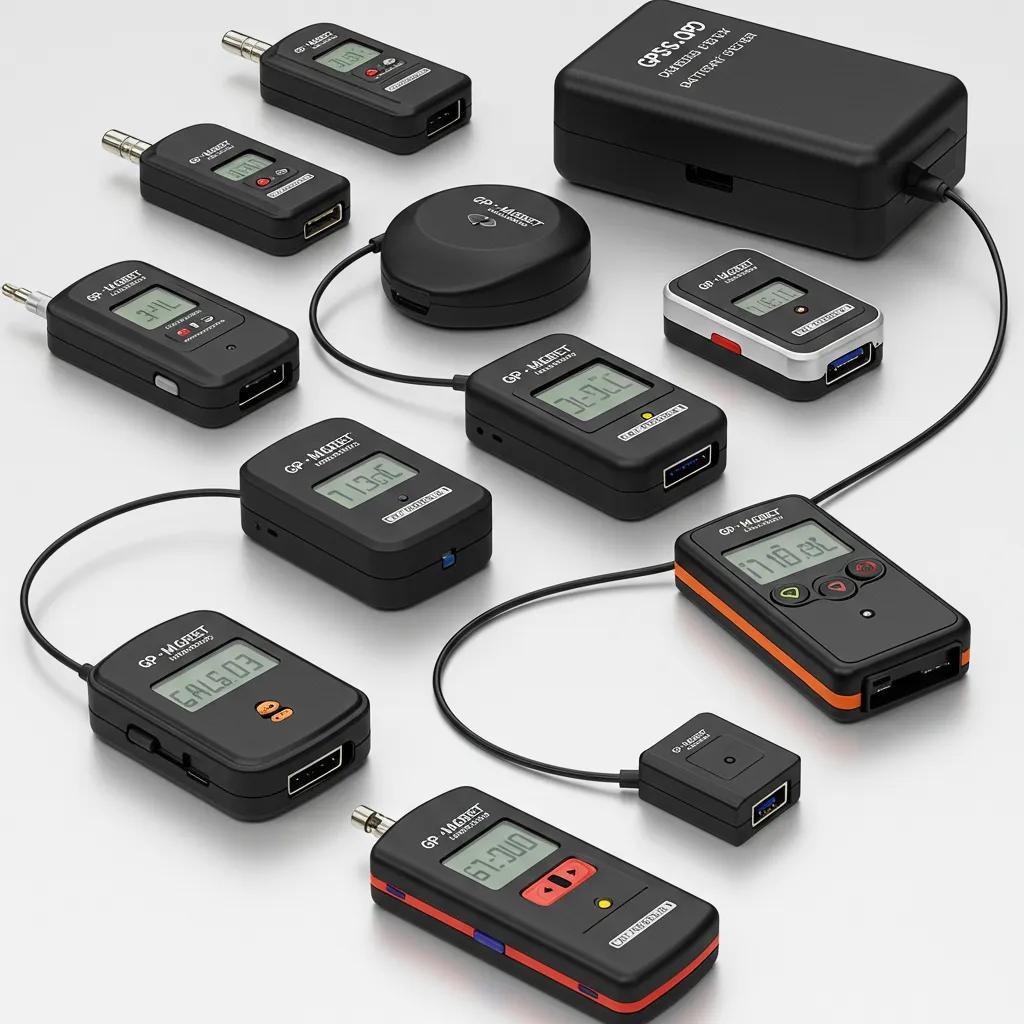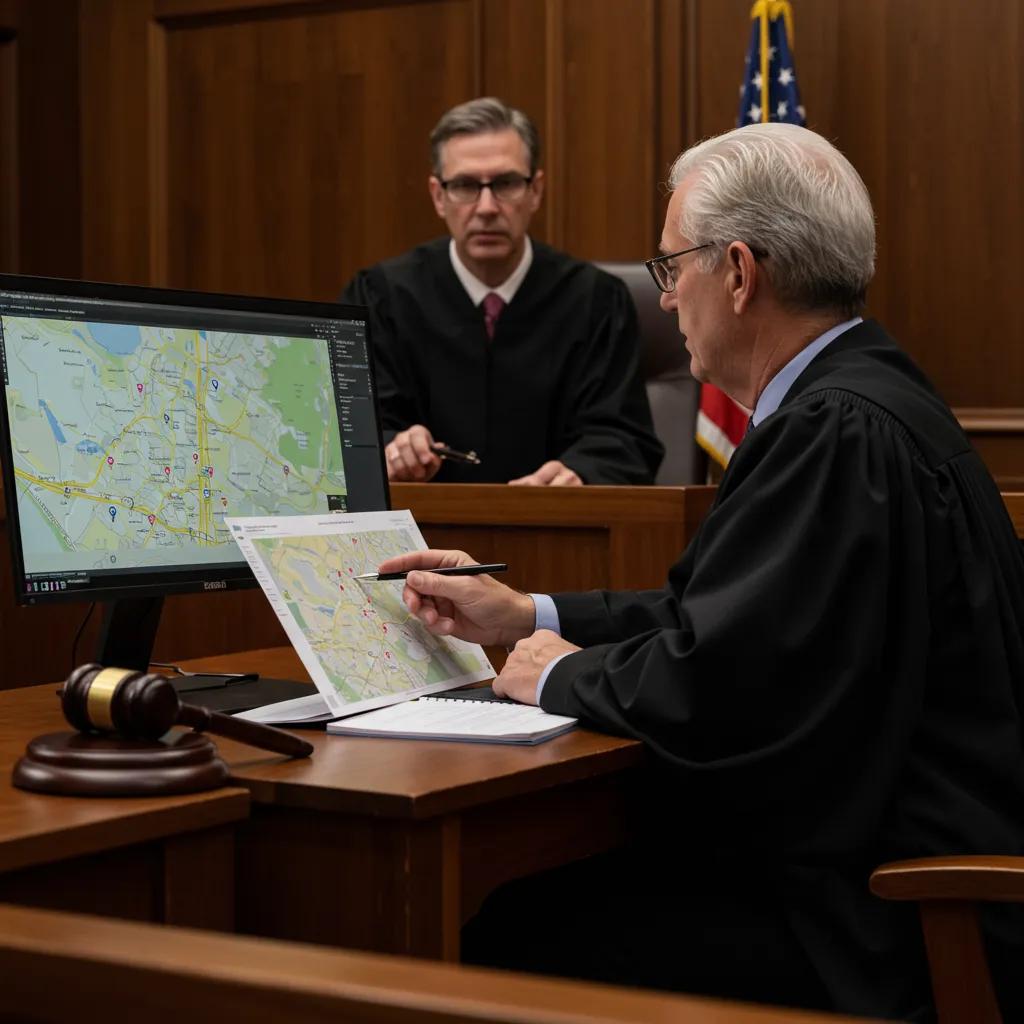GPS tracking has revolutionized the field of private investigation, offering a powerful, discreet, and highly accurate method for gathering evidence in surveillance cases. By leveraging this technology, investigators can lawfully monitor a subject’s movements, patterns, and associations over time—providing critical insights for infidelity, child custody, or corporate fraud investigations. However, the use of GPS tracking is bound by strict legal and ethical guidelines that vary by jurisdiction, making it essential to work with licensed professionals who understand compliance and admissible evidence. In this guide, we’ll explore how GPS technology is applied in real-world surveillance, the legal framework governing its use, and the undeniable impact it can have on building a compelling, fact-based case.
The Power of GPS Tracking Investigations in Real Cases
What Exactly Is GPS Tracking and How Do Investigators Employ It?

GPS tracking uses satellite signals to determine the precise location of a device, vehicle, or asset. Investigators use this data to build objective timelines and verify movements. When applied correctly, GPS tracking produces timestamped location records that can confirm or disprove alibis, map travel routes, and reveal patterns of behavior over time. It is a tool for fact-finding rather than conjecture, and when combined with other evidence, it can strengthen investigative outcomes.
What Types Of GPS Tracking Devices Are Commonly Used In Surveillance?
There are several device styles suited to different needs. Small magnetic trackers attach to a vehicle’s exterior for discreet monitoring. Hardwired units are connected to a vehicle’s electrical system for continuous power and longer deployments. Portable battery-powered devices offer flexibility for short-term tracking of equipment or shipments. Investigators choose hardware based on required battery life, reporting frequency, and the level of stealth needed for the operation.
How Do Real-Time And Passive GPS Trackers Differ In Practice?
Real-time GPS tracking transmits location updates immediately via cellular or satellite networks, allowing investigators to monitor movement as it happens. This is useful in dynamic situations that require rapid response. Passive trackers, by contrast, store location data internally for later download. Passive units conserve power and reduce the chance of detection, making them suitable for long-term pattern analysis. Each approach has trade-offs in immediacy, battery life, data volume, and operational risk.
Can Mobile Phones Be Used For GPS Tracking In Investigations?
Mobile phones can provide rich location data, but their use carries important legal and ethical constraints. Investigators may access phone-based GPS tracking when they have the device owner’s clear consent or other valid legal authorization. Specialized software can log location history, timestamps, and movement reports, but investigators must ensure proper permissions are in place before collecting or presenting this information. In many cases, supporting documentation or a chain-of-custody protocol is needed to make the data admissible in formal proceedings.
What Legal And Privacy Considerations Apply To GPS Tracking?
GPS tracking raises privacy and legal issues that vary by jurisdiction. Unauthorized tracking of a person or vehicle can violate criminal statutes, civil privacy laws, or both. Licensed investigators must be familiar with local rules governing surveillance, court-ordered authorizations, and consent requirements. Proper documentation of authorization, careful record keeping, and adherence to professional standards are essential to avoid legal exposure and to preserve the integrity of the evidence collected.
How Is GPS Tracking Data Interpreted And Used In Reports?
Raw GPS logs show coordinates and timestamps, but interpretation adds value. Analysts map routes, correlate stops with timestamps, and cross-reference location data with witness statements, video, or transaction logs. Clear visualizations and concise narrative summaries help clients and legal teams understand patterns and context. When presented accurately and transparently, GPS tracking data becomes a powerful element in investigative reports and case files.
GPS tracking is a precise, evidence-focused technology when used responsibly. Its utility depends on correct device selection, lawful authorization, careful data handling, and rigorous interpretation. When those elements are in place, GPS tracking can provide reliable, actionable insight for investigations while respecting legal and ethical boundaries.
Navigating the Legal and Ethical Landscape of GPS Tracking in Investigations

GPS tracking is a powerful investigative tool, but its use is tightly regulated by legal and ethical standards. Investigators must balance the need for accurate information with respect for individual privacy and property rights. Missteps can lead to evidence being thrown out or even legal penalties. To stay compliant, professionals must understand local laws, obtain proper authorization, and maintain thorough documentation throughout the process. Following these standards ensures both the integrity of the evidence and the credibility of the investigation.
Is It Legal for Private Investigators to Place GPS Trackers on Vehicles?
The legality of using GPS tracking devices depends on ownership and consent. In most states, private investigators can legally attach a GPS tracker to vehicles they own, lease, or have explicit permission to access. If the vehicle belongs to someone else, consent from the owner or a court order is usually required. Placing a tracker on another person’s property without authorization can violate privacy laws and lead to charges of trespassing or stalking.
Because regulations vary from state to state, investigators must verify the rules specific to their jurisdiction before deploying any tracking device. Taking the time to confirm these details protects both the investigator and the validity of the collected data.
How Do Privacy Laws Impact GPS Surveillance Practices?
Privacy laws set clear boundaries on how GPS data can be collected, stored, and used. Many states require informed consent before any tracking takes place, while others limit how long location data can be retained. Secure handling of data is also essential, as any breach could expose sensitive information and lead to civil liability.
Investigators must also comply with federal laws, such as those governing electronic communications and data privacy. Failing to follow these regulations can result in evidence being excluded from court or in disciplinary action against the investigator. Careful adherence to privacy protections ensures that GPS tracking remains a legitimate and defensible method of information gathering.
How Is GPS Evidence Deemed Admissible in Court?
For GPS tracking data to be admissible in court, it must be collected legally and supported by a clear chain of custody. Investigators must document when and where the tracker was placed, how data was retrieved, and who had access to it during the investigation. Courts require proof that the device was properly calibrated and functioning accurately at the time of use.
Metadata, original logs, and expert testimony often play key roles in confirming that the evidence is authentic and reliable. If all these conditions are met, GPS evidence is generally accepted in court as a credible form of documentation, providing valuable insight into movement patterns and timelines.
Which Investigative Scenarios Are Most Enhanced by GPS Tracking Technology?
GPS tracking plays a vital role in modern investigations by providing accurate, timestamped data that reveals movement patterns, confirms alibis, and exposes hidden routes. Whether used in personal, corporate, or criminal inquiries, it transforms speculation into verifiable evidence. Its ability to capture both real-time and historical data makes it one of the most valuable tools for private investigators and law enforcement alike.
How Is GPS Tracking Applied in Infidelity and Marital Investigations
In cases involving suspected infidelity or hidden relationships, GPS tracking allows investigators to discreetly monitor a subject’s movements. When installed on a vehicle with proper authorization, the tracker records location data, routes, and stop durations, helping confirm or dismiss suspicions. This information provides clear, factual evidence that eliminates guesswork and helps clients approach sensitive personal matters with greater clarity.
The growing reliance on technology in relationship investigations reflects a broader trend in private investigation work. GPS tracking offers a factual foundation in situations often clouded by emotion or uncertainty, giving clients confidence in their next steps.
What Role Does GPS Play in Asset Recovery and Theft Investigations
GPS tracking is an essential tool in asset protection and recovery cases. When a high-value item or vehicle is equipped with a GPS device, it can send immediate alerts if it moves outside a designated area. Investigators or law enforcement can then use real-time location data to pinpoint the asset’s exact location. This capability greatly increases recovery rates and reduces financial losses.
Even after an item is recovered, GPS data can be used to retrace movements, identify suspects, and support insurance or legal claims. For businesses and individuals managing valuable assets, GPS technology provides both security and accountability.
How Does GPS Tracking Support Employee Monitoring and Corporate Investigations
Companies use GPS tracking to oversee fleet operations, verify productivity, and prevent misuse of company vehicles. Location data helps managers ensure drivers follow assigned routes and schedules, while geofencing alerts them to unauthorized detours or stops. Over time, this information can reveal inefficiencies, potential policy violations, or patterns of misuse that might otherwise go unnoticed.
For corporate investigations, GPS tracking also supports broader compliance and security measures. Accurately recording vehicle or asset movements provides documentation that can verify or disprove internal reports, protecting both the business and its employees from disputes.
From personal matters to corporate security, GPS tracking technology has become an indispensable investigative tool. Its precision and reliability make it ideal for uncovering facts that might otherwise remain hidden. When used legally and ethically, GPS tracking provides investigators with the data they need to make informed conclusions and deliver verifiable results. Whether tracing assets, monitoring vehicles, or confirming movements, it continues to be one of the most effective ways to turn complex investigations into clear, evidence-based findings.
Mastering the Deployment and Analysis of GPS Tracking Data by Private Investigators
In the hands of a skilled investigator, GPS tracking turns raw location data into valuable intelligence. Each phase of the process—from device placement to data interpretation—demands precision, planning, and adherence to strict legal and ethical standards. When properly deployed and analyzed, GPS data can provide clear, verifiable insights that strengthen investigative findings and support legal cases.
What Are the Essential Steps for Deploying Covert GPS Trackers?
Effective GPS tracking begins with selecting the right device for the assignment. Before deployment, investigators confirm that the tracker is fully charged, transmitting correctly, and compatible with the target environment. Battery life and signal reliability are crucial, especially for long-term monitoring.
Once the device is ready, it must be concealed in a secure and discreet location, often on the vehicle’s undercarriage or within a hidden interior compartment. Proper placement ensures the tracker remains undetected while maintaining a clear satellite connection. Every installation is carefully documented, including serial numbers, timestamps, and the exact point of attachment. This record-keeping preserves the chain of custody, which is vital if the data is later used in legal proceedings. These steps ensure both accuracy and evidentiary integrity throughout the investigation.
How Is GPS Location Data Collected, Analyzed, and Reported?
After a tracking period concludes, investigators retrieve the device or access its stored data remotely. The collected coordinates are then imported into specialized mapping software to reconstruct travel routes. Advanced programs can display time-stamped paths, identify frequent stops, and measure travel speed, giving investigators a full picture of a subject’s movements.
Patterns that emerge during analysis can reveal key insights, such as repeated visits to specific locations or deviations from routine behavior. Investigators compile these findings into clear visual reports that include route maps, summaries, and time logs. The goal is to present data that is factual, easy to interpret, and defensible in court if needed. Precision in analysis not only supports investigative conclusions but also ensures the credibility of the evidence presented.
When Is It Strategic to Combine GPS Tracking with Other Surveillance Methods?
While GPS tracking is powerful on its own, combining it with other surveillance tools often produces the most comprehensive results. For example, pairing location data with photographic or video evidence can verify who was present at a location and what occurred there. Similarly, integrating GPS results with digital forensics or financial records can help connect travel activity with specific events or transactions.
In ongoing investigations, real-time GPS tracking can also guide field teams, allowing them to respond immediately to unexpected movements or opportunities for observation. This coordination between digital and physical surveillance enhances efficiency and ensures no key developments are missed.
For private investigators, GPS tracking is far more than a simple monitoring tool. When executed with precision, it provides a factual foundation that helps verify claims, uncover patterns, and establish timelines. The process relies on meticulous deployment, careful data handling, and expert interpretation. Used ethically and in compliance with legal standards, GPS tracking remains one of the most reliable and effective methods for transforming raw data into actionable intelligence.
Why Entrusting Experts With GPS Tracking Enhances Confidential Surveillance
Relying on professionals for GPS tracking ensures accuracy, discretion, and compliance with legal standards. Expert investigators understand the technology, regulations, and protocols that govern surveillance, ensuring that all data is collected and handled lawfully. This approach not only produces precise results but also protects client privacy and the integrity of the evidence. By tailoring each investigation to the specific needs of a case, professionals can transform location data into actionable insights while maintaining complete confidentiality.
What Specialized Expertise Do Professional Investigators Bring to GPS Surveillance
Experienced investigators bring a combination of technical knowledge and field expertise to GPS tracking. They are trained in covert operations, evidence documentation, and data interpretation, allowing them to operate efficiently without compromising the investigation. Professionals know how to select the right device for each situation, whether for short-term tracking or long-term monitoring, and how to install it in a way that ensures reliability and discretion.
Their background in investigative work also means they understand how to interpret movement data in context. This allows them to identify meaningful patterns, confirm or disprove suspicions, and present findings that can withstand legal scrutiny. From infidelity cases to corporate monitoring and asset recovery, expert analysis ensures that GPS data contributes directly to a case’s success.
How Is Confidentiality Protected During GPS Tracking Investigations
Maintaining confidentiality is one of the most critical aspects of any GPS tracking investigation. Professionals use encrypted communication systems, secure databases, and restricted access protocols to protect sensitive data. Field teams operate discreetly, often using unmarked vehicles and anonymous identifiers to ensure that surveillance remains undetected.
Beyond physical security, confidentiality also depends on careful documentation and data handling. Every step of the process—from tracker deployment to data retrieval—is logged and stored securely. This disciplined approach prevents unauthorized access and maintains the chain of custody required for any potential legal proceedings.
What Technologies Improve the Accuracy and Effectiveness of GPS Tracking
Modern GPS tracking has evolved well beyond simple location monitoring. Today’s investigators use advanced technologies that enhance both accuracy and efficiency. Real-time analytics provide instant updates on movement, allowing investigators to react quickly as situations develop. Geofencing tools automatically trigger alerts when a subject enters or leaves specific locations, streamlining the monitoring process.
Artificial intelligence is also becoming an important part of GPS analysis. AI-powered software can detect movement patterns and highlight anomalies that might otherwise go unnoticed, helping investigators focus on the most relevant data. These tools ensure that every piece of information gathered is both timely and actionable, reducing manual review time and improving the overall quality of the results.
Expert GPS tracking goes beyond simply knowing where someone or something is—it’s about gathering accurate, legally sound data that tells a complete story. Professional investigators combine advanced technology, specialized training, and strict confidentiality protocols to ensure that every detail is handled with precision and discretion. Whether used for personal, corporate, or legal cases, expert GPS tracking provides reliable intelligence that clients can trust to guide critical decisions.ights and prosecutorial standards.
Conclusion
GPS tracking has revolutionized modern surveillance, offering precise, real-time data that is invaluable for everything from infidelity cases to complex corporate investigations. At 4Horsemen Investigation & Security, our licensed professionals leverage this technology legally and ethically to deliver the clear, actionable evidence you need. If you require discreet and definitive answers, call 404-680-0860 or visit our website to schedule your confidential consultation. Trust the experts at 4Horsemen to navigate the digital landscape and uncover the truth.






